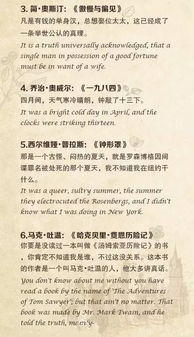中文与西方语言相比

Comparative Analysis of Western and Chinese Literature
In exploring the comparative analysis of Western and Chinese literature, it's essential to delve into the rich tapestry of both traditions, understanding their historical, cultural, and philosophical underpinnings. While Western literature spans millennia and encompasses diverse genres from epic poetry to modern novels, Chinese literature boasts a similarly extensive heritage, marked by its unique linguistic features and thematic concerns.
Western literature can be traced back to ancient civilizations such as Greece and Rome, with seminal works like Homer's Iliad and Odyssey laying the foundation for epic poetry. Over the centuries, Western literature evolved through different periods, including the Middle Ages, Renaissance, Enlightenment, and Romanticism, reflecting shifting societal values and beliefs.
On the other hand, Chinese literature has a history dating back thousands of years, with early classics like the Book of Songs and Tao Te Ching shaping literary conventions and philosophical thought. Dynastic eras such as the Tang and Song dynasties witnessed flourishing artistic endeavors, marked by poetry, prose, and drama.
Western literature often explores themes of individualism, heroism, and existentialism, reflecting the influence of JudeoChristian values and GrecoRoman philosophy. Works like Shakespeare's tragedies delve into the complexities of human nature, while novels such as Dostoevsky's Crime and Punishment grapple with moral dilemmas and psychological depth.
In contrast, Chinese literature frequently emphasizes harmony with nature, filial piety, and moral righteousness, drawing inspiration from Confucianism, Daoism, and Buddhism. Classical Chinese poetry, characterized by its concise yet evocative language, often reflects on the transience of life and the beauty of natural landscapes.
The linguistic characteristics of Western and Chinese literature also contribute to their distinctiveness. Western languages like English, French, and German employ alphabets and grammatical structures that allow for intricate wordplay and syntactical complexity. This linguistic flexibility is evident in poetic forms like the sonnet or the villanelle.
Conversely, Chinese literature relies on logographic characters, each representing a word or concept, which lends itself to a highly pictorial and ideographic mode of expression. Classical Chinese poetry, with its strict tonal patterns and rhyme schemes, exemplifies the intricate beauty of the language.
Both Western and Chinese literature have left indelible marks on global culture and continue to inspire writers and readers alike. Western literary classics such as Hamlet and Don Quixote have been translated into numerous languages and adapted into various art forms, demonstrating their enduring relevance.
Similarly, Chinese literary masterpieces like Dream of the Red Chamber and Journey to the West have captivated audiences across the world, offering insights into Chinese history, society, and values. The popularity of Chinese literature in translation underscores its universal themes and timeless appeal.
To delve deeper into the comparative analysis of Western and Chinese literature, consider:
By engaging with the rich heritage of Western and Chinese literature, one can cultivate a deeper appreciation for the universal human experiences and cultural nuances that shape literary expression across different civilizations.
